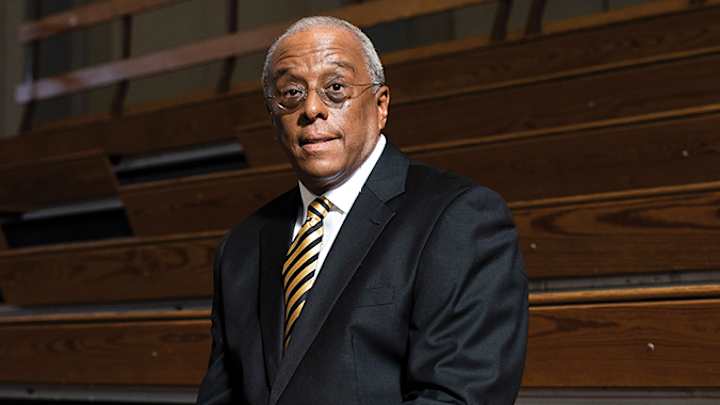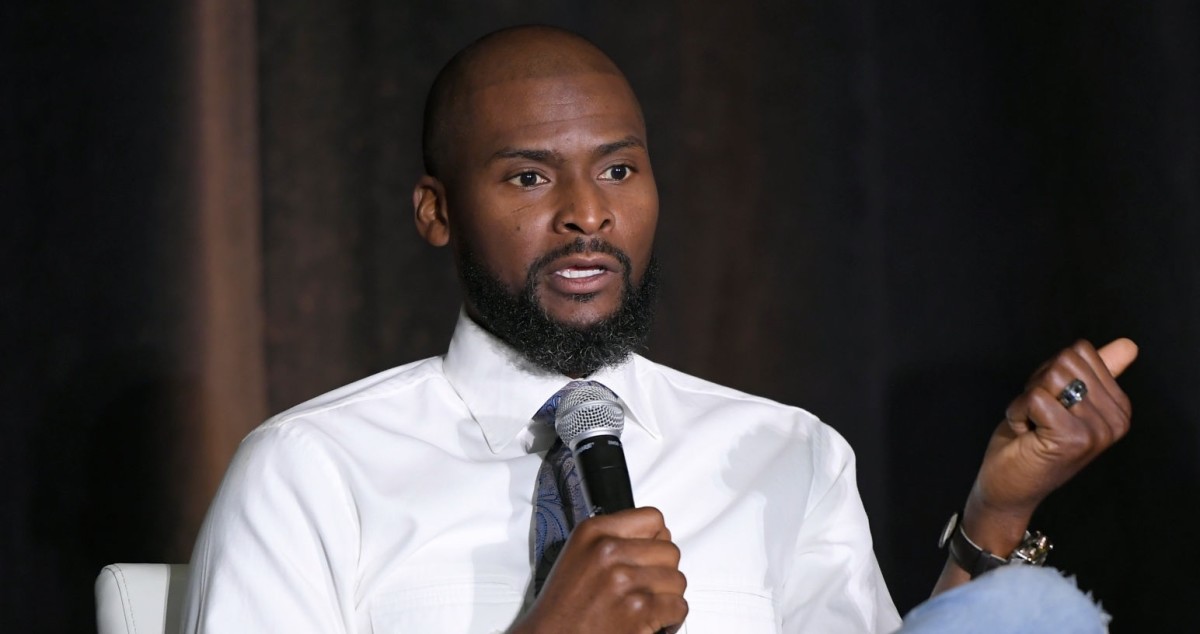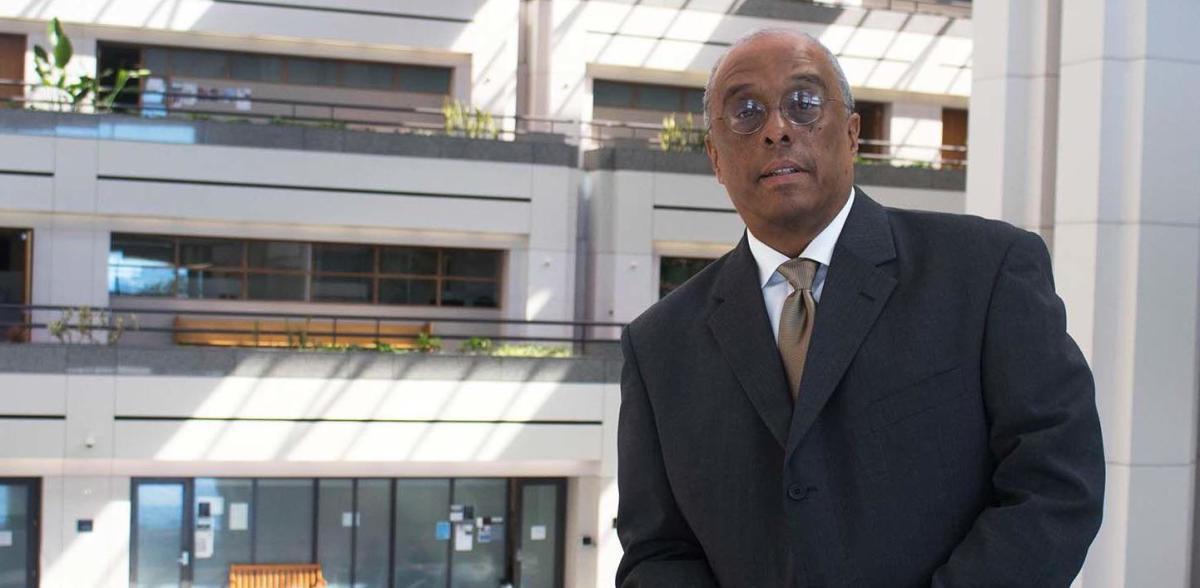Exclusive: NBPA’s Dr. Parham on the NBA and Coronavirus - 'Still Waters' and 'Hidden Tattoos'

It is with a calm and professorial tone that Dr. William D. Parham, the first-ever director of mental health and wellness of National Basketball Players Association, delivers to me a mantra for all time - and for our time.
"A person will never see their reflection in running water,'' Dr. Parham says. "It is only when the water is still that their reflected image begins to emerge.''
Dr. Parham and former NBA standout Keyon Dooling (player wellness counselor) work together to head up a program, started in May 2018, designed to guide NBA players through the emotional ups and downs of life. Much of their work has been to erase the stigmas athletes must deal with when it comes to "vulnerability'' and "sensitivity'' and what Dr. Parham calls "the invisible tattoos.''
At the moment, of course, Dr. Parham and Dooling and NBA players - "ballers,'' Dr. Parham favors calling them - face another challenge, as do we all: the realities of the COVID-19 outbreak, which has caused a suspension of league play and a "stay-at-home'' initiative that it would seem runs opposite of every fiber in a young, healthy, wealthy male athlete.
"I think people 'get it,'' Dr. Parham says. "I think ballers get it. They really do see that it's a force bigger than themselves. But we are also stressing the notion that there is a blessing in all of this: It allows us all to bond with family and friends - to honor what the CDC (Center for Disease Control) is telling us while we also resist the temptation toward social isolation - and to engage in self-reflection.''
Dooling tells me there has been "an uptick in engagements. Social media is very helpful. One (direct message) and we can offer a quick response, right away ... and help each other out.''
Dr. Parham's initial goal featured a four-pronged plan designed to offer readily-available services, to deal with what Dooling calls "the baggage that if heavy enough can make a person a ticking time bomb'' and to de-stigmatize mental health issues.
"One,'' Dr. Parham says, "we created a directory of licensed mental health professionals in each of the cities where the NBA has a franchise. Two, we created our 'Touch Program.' Keyon and I are both based on the West Coast, so we visit home games of the Clippers and Lakers and visit various locker rooms. Three, we are capitalizing on Keyon's 13 years as an NBA baller to create relationships and remind them we're here. And four, we're spreading the word in starting a new narrative about mental-health stigmas.''
In addition to a 24-hour hotline, part of that reach-out is a late-March plan to launch an NBPA "Wellness Roundtable.'' Every player in the NBA will have a Zoom link and will be invited to check in with the group.
"To learn,'' Dr. Parham says, "how we're all coping.''
And ... how are NBA "ballers'' coping?
"The goal is to change the narrative," he says. "There's a common belief that if you start talking about a person's personal challenges, that you'll open up Pandora's box. In fact, the opposite is true; it marks the unlocking of gifts ... as ballers and as men.
"At this moment, ballers are receiving information about what they can do, with their businesses, with their (charitable) foundations, with mental health and wellness, all part of adjusting to the challenges of coronavirus.''
Dr. Parham came to this job rather naturally; he is indeed a professor in the counseling program at Loyola Marymount University, and has been a student of psychology, for his entire life, with bachelor's and master's degrees from the University of California at Irvine and a Ph.D. in counseling psychology from Southern Illinois University-Carbondale.
Dooling's path, which now includes his work as an author and speaker on the subject of mental health, was a different one.
"I had a battle with PTSD (Post-Traumatic Stress Disorder),'' says the 14-year NBA vet, now 39. "My journey is very much about me having been a victim of childhood sexual abuse.'' (See Dooling's moving piece "Running From A Ghost'' in the Players' Tribune here; recommended reading from Dr. Parham here regarding the ACE Study and the adult impact of "adverse childhood experiences.'')

NBA players have been at the fore of many advancements in sports culture and in culture in general. In this category, DeMar Rozan, Tyronn Lue and Kevin Love are among the headliners who've offered personal testimonials of their struggles.
Now comes an additional challenge, for all of us, for Dr. Parham's department, and for "ballers.''
"The coronavirus issue is a unique and unprecedented crisis,'' he says, in knowledge he's imparting to NBA players and to the rest of us as well. "But what is the same about any previous crises is our ability to respond. We don't ever really have complete 'control' of our lives. But we do control, 100-percent, the way we respond.
"We have been forced into a time of stillness. We can complain about it, or we can establish a ritual within those new-reality confines.''
I ask Dr. Parham what makes the young athlete arguably even more challenged. Part of that, he says, is about what jocks are asked to be.
"Men in society are not incentivized to be vulnerable,'' he says. "Athletes and celebrities ... (are) invited to 'tough it out.' 'Be a man.' 'Stand tall. It's code for 'keep everything packed inside.'"
But Dr. Parham and Dooling, in their work, recognize that this is about all of us finding what he calls an "antidote'' toward better mental health.
"There is a collection of feelings all people are having: fear and panic and an undercurrent of feeling things are out of control,'' Dr. Parham says. "It's important to exercise some control. That's the antidote. Ballers, and the rest of us, are creatures of habit and pattern - when we wake up and go to bed, our nutrition, our workouts ... spirituality, learning, reading ... all the habits are things we have control over.
"Let's talk about how we are thinking and how we are feeling. Acknowledge, not denial, and balance. And now, of course, those habits must include a control of our spacing and social-distancing, but still with social connections.''

Dr. Parham, as always featuring that calm and professorial tone that increasingly finds itself into the psyche of his "ballers,'' offers optimism not only for the future of mental health in the NBA but for all of us as we cope with COVID-19.
"Stars shine their brightest during the darkest part of night,'' Dr. Parham says smoothly, issuing another meaningful mantra. "COVID-19 is is a cloud hanging over us; these are dark times. But it's darkness that brings out our ability to shine. And for ballers in the NBA Players Association and NBA, that's what's going to happen.”
